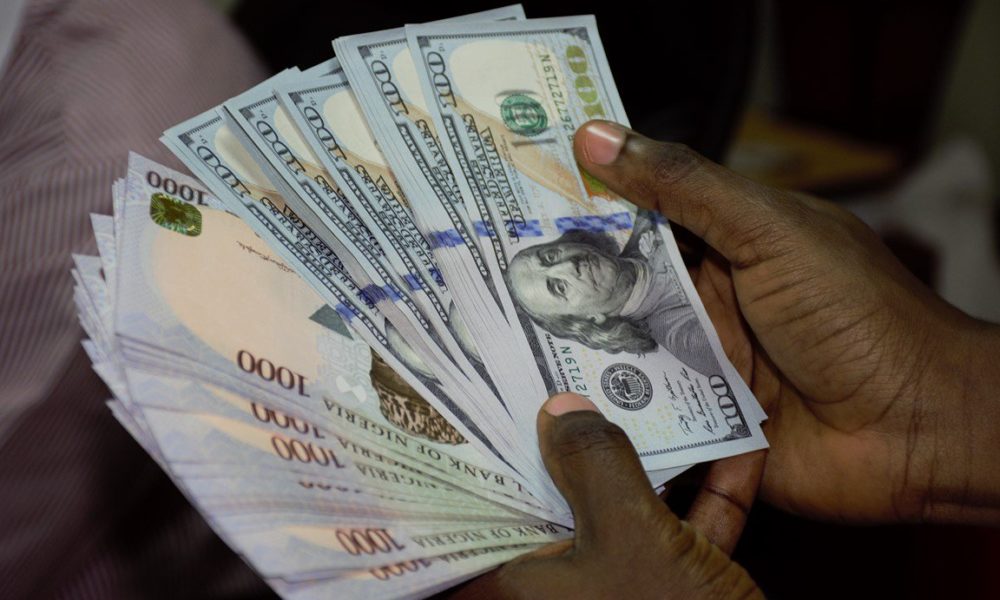Business
Revving Up Liquidity, Capital Inflows

- Revving Up Liquidity, Capital Inflows
The Central Bank of Nigeria (CBN) has systematically evolved innovative policies aimed at revving up liquidity and energetic capital inflows to impact economic activities towards building a healthy and balanced economy. Liquidity is crucial in business and economy and is defined as “a measure of the extent to which a person or organisation has cash to meet immediate and short-term obligations, or assets that can be quickly converted to do this.’’
It engenders a high volume of activity in a market which ultimately impacts the Gross Domestic Product (GDP).
A healthy economy is where unemployment and inflation are in balance. Experts posit that the natural rate of unemployment in a healthy economy would be between 4.7 per cent and 5.8 per cent and the target inflation rate would be two per cent.
A healthy growth rate would be between two and three per cent. GDP growth above four per cent for several quarters would overheat the economy and create asset bubble and investor ‘madness’ which would eventually throw the economy into recession and finally to a record low before the ‘madness would stop.
Unemployment rates in USA, UK, China, Germany and India are 3.90 per cent, four per cent, 3.8 per cent, 3.4 per cent and 3.52 per cent respectively, and the corresponding inflation rates are 2.9 per cent, 2.5 per cent, 2.1 per cent, 2.1 per cent and 4.96 per cent respectively.
The figures for Nigeria are a long way from home which tells the health of the economy. Unemployment rate is at 18.80 per cent up from 16.20 per cent in Q2 2017, and inflation rate at 15.37 per cent at end December 2017, having dropped consistently from 18.72 per cent at end January 2017, thanks to CBN tight monetary policy and other factors.
CBN monetary policy, exchange rate policy and development actions contributed to the positive economic development in 2017.
The World Bank in its 2017 report commended the central bank policies and called for sustenance.
Business mogul and Africa’s richest man, Alhaji Aliko Dangote had also noted that ‘’ the policies of the Central Bank contributed in saving the economy.’’
Also, Lagos Chamber of Commerce and Industry (LCCI) had noted that ‘’CBN has been consistent in its interventions in the foreign exchange market. This has helped to reduce exchange rate volatility. With the interventions, we have seen improved liquidity of the foreign exchange and stability of the naira against the dollar. Confidence is gradually returning to the market and we hope that this would be sustained.’’ Consumer confidence is crucial for a healthy economy and is one of the five major indicators. Others are, GDP, Money supply (M2), Consumer price index, Producer price index and current employment statistics.’’
CBN’s new policy is the currency swap deal with the Peoples Bank of China (PBoC) which aim to fix the liquidity challenges faced by Nigerian traders and Chinese manufacturers. A currency swap is a ‘’contract to exchange at an agreed future date principal amounts in two different currencies at a conversion rate agreed at the outset.’’
Currency swaps were introduced by the World Bank in 1981 to obtain Swiss franc and German marks by exchanging cash flows with IBM in a deal reportedly brokered by Salomon Brothers with a notional amount of $210 million and a term of over ten years. The US Fed used currency swap transaction during the global financial crisis in 2008 to establish central banks liquidity swaps to provide liquidity in US dollars to overseas markets.
Besides Nigeria, other countries that have swap deals with China include South Africa, Malaysia, UK, Thailand, Hong Kong, European Union etc. In 2011, Nigeria was the largest trading partner of China in Africa, and in the first eight months in 2012, it was the third. Overall, Nigeria was rated the most pro-Chinese nation in the world by a poll conducted by BBC World Service.
Eighty per cent Nigerian expressed positive sentiment for China and 20 per cent otherwise.
It is noteworthy that the flooding of the economy with cheap Chinese goods has affected domestic industries especially textile mills with the closure of 65 mills and lay-off of about 150,000 workers, but CBN has noted that the new swap deal would be mutually beneficial to both economies.
According to the central bank, “the deal which is purely an exchange of currencies will make it easier for Chinese manufacturers seeking to buy raw materials from Nigeria to obtain enough naira from banks in China to pay for their imports from Nigeria. Indeed, the new deal will protect Nigerian business people from the harsh effect of third currency fluctuations.”
The new deal has been applauded by some captains of industry.
In a recent report, the Director General LCCI, Mr Muda Lawal, noted among other things that “it will impact on trade positively between Nigeria and China because it would make the payment system easier.’’
Prior to the currency swap deal, CBN established the Investors’ and Exporters’ (I&E) FX Window which boosted liquidity with a turnover of $22.85 billion at end December 2017 and kick-started production which hitherto was moribund in the wake of economic recession and dollar scarcity.
CBN reported that the aggregate foreign exchange inflow increased by 45 per cent to $91 billion in 2017, compared to $62.75 billion in 2016.
Inflow through CBN was $42.17 billion, accounting for 46.30 per cent, while autonomous sources accounted for $48.33 billion or 53.70 per cent.
Overall net inflow in 2017 was $57.32 billion compared to $37.19 billion in 2016. CBN net inflow in 2017 was $11.62 billion as against a net outflow of $2.10 billion in 2016.
The increased inflow was attributed to the central bank’s interventions in the interbank and Bureau de Change segments of the FX market.